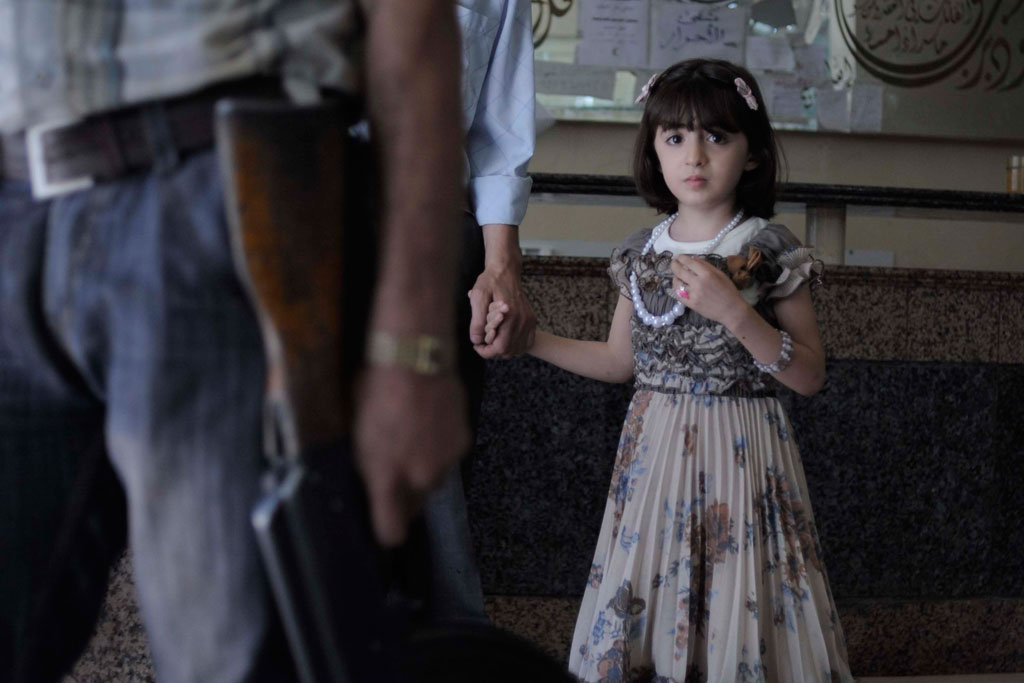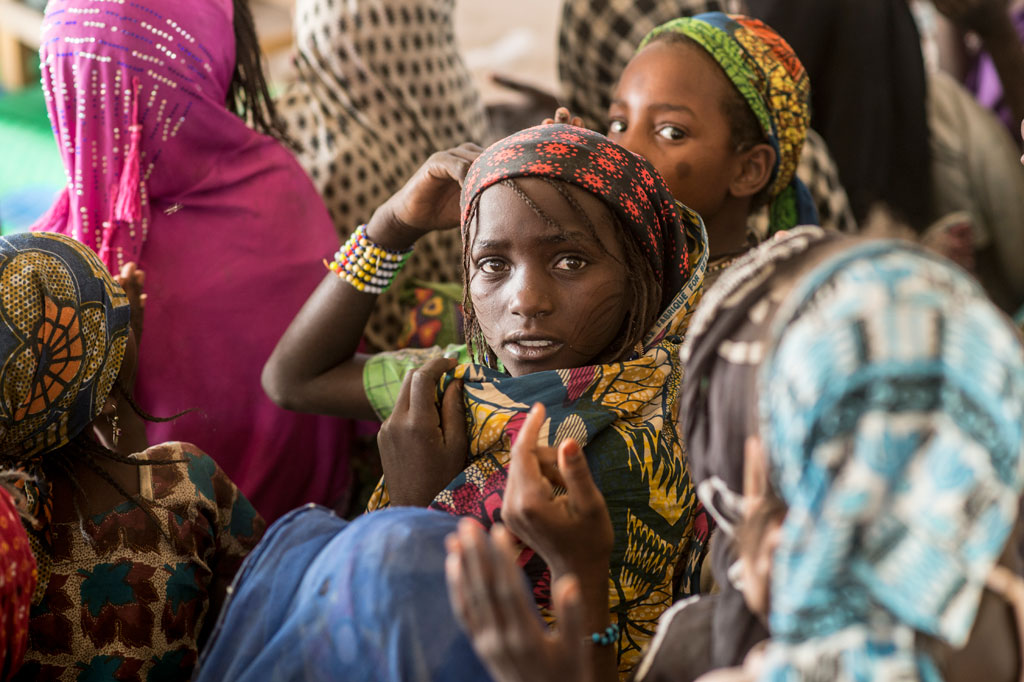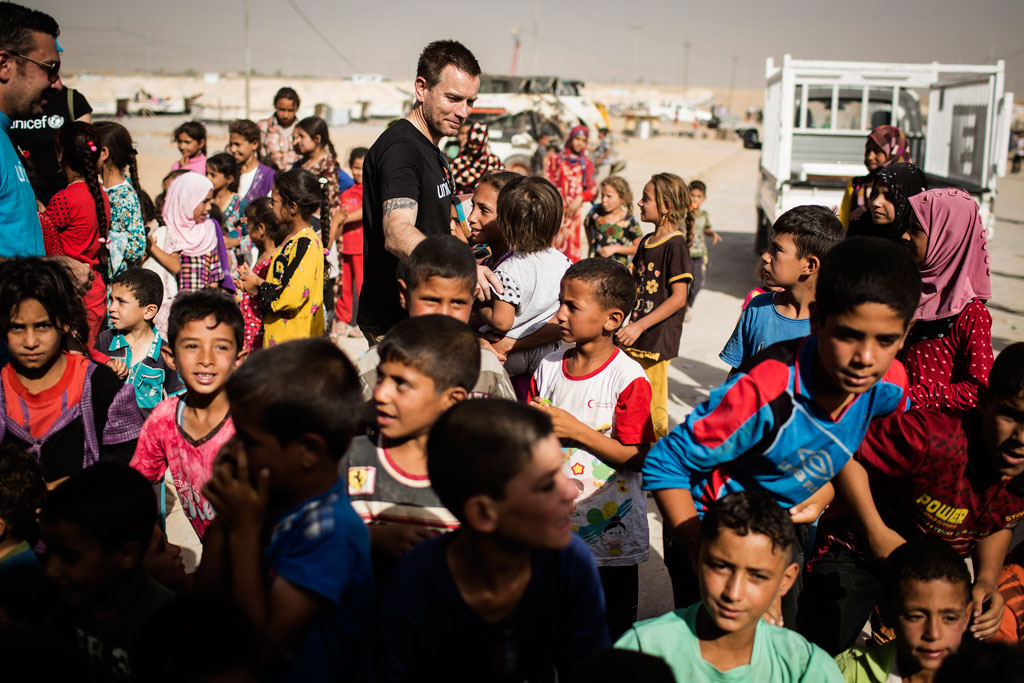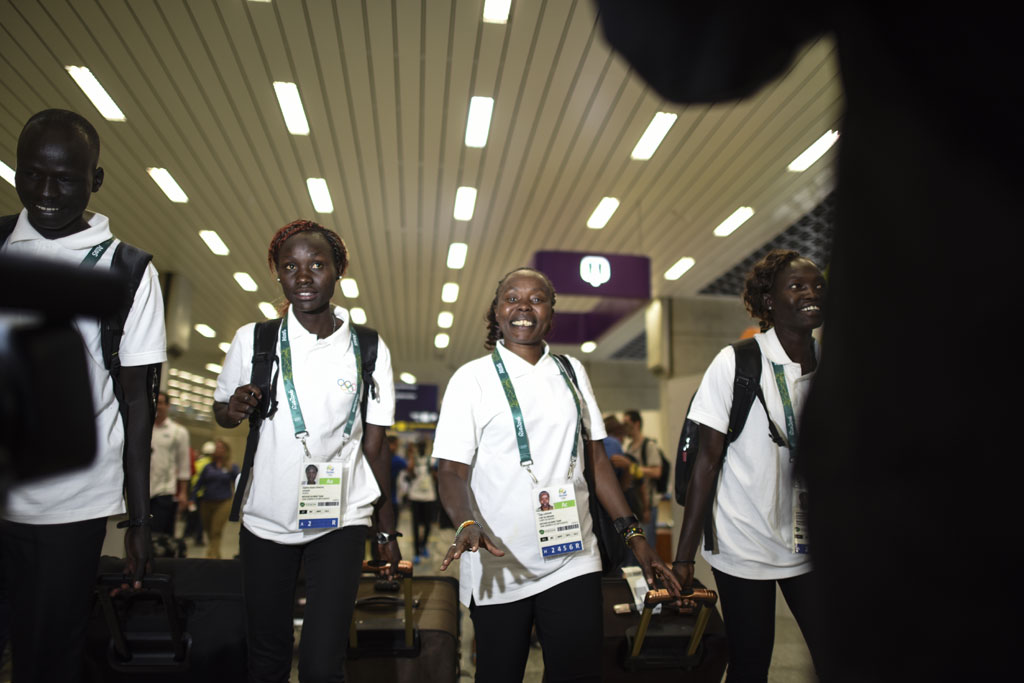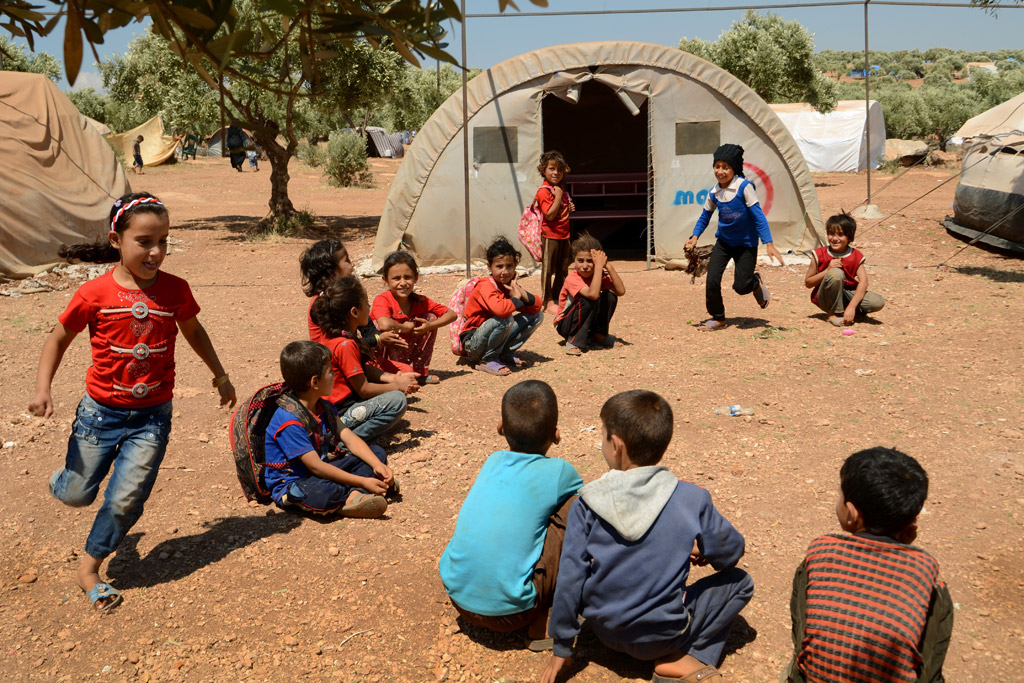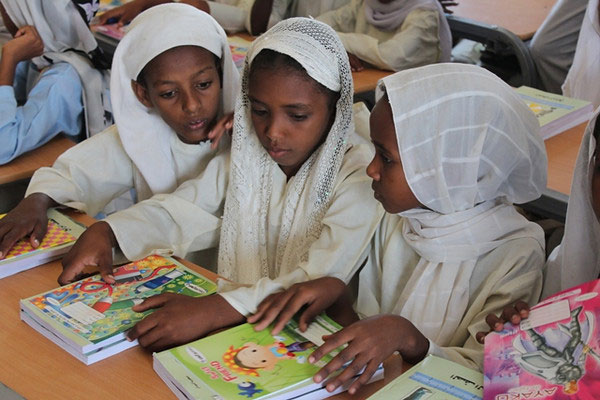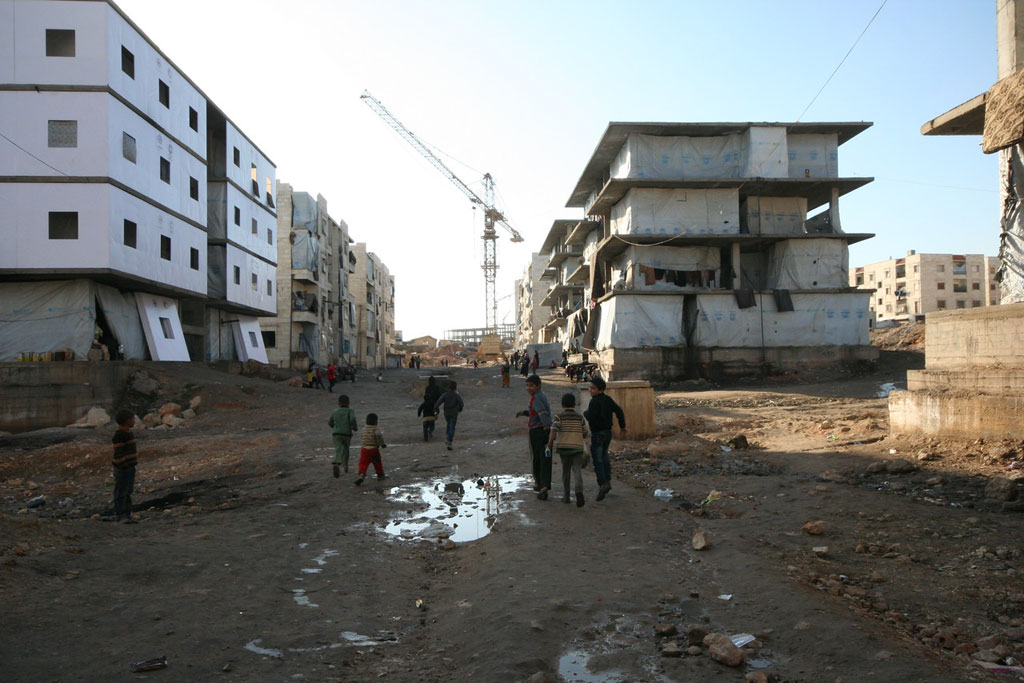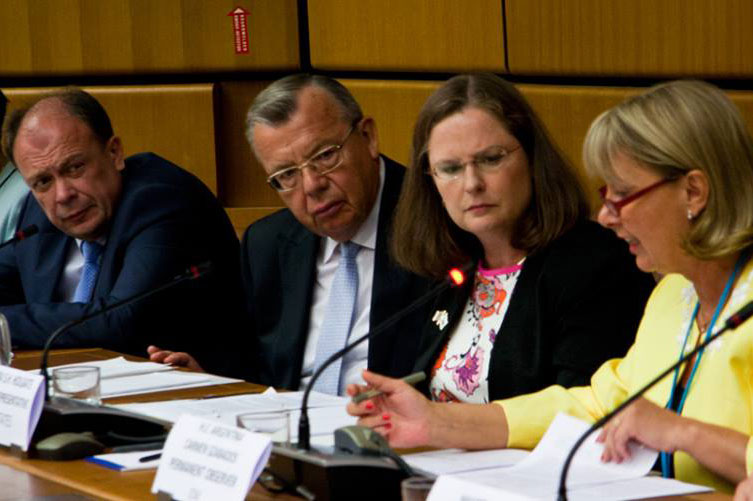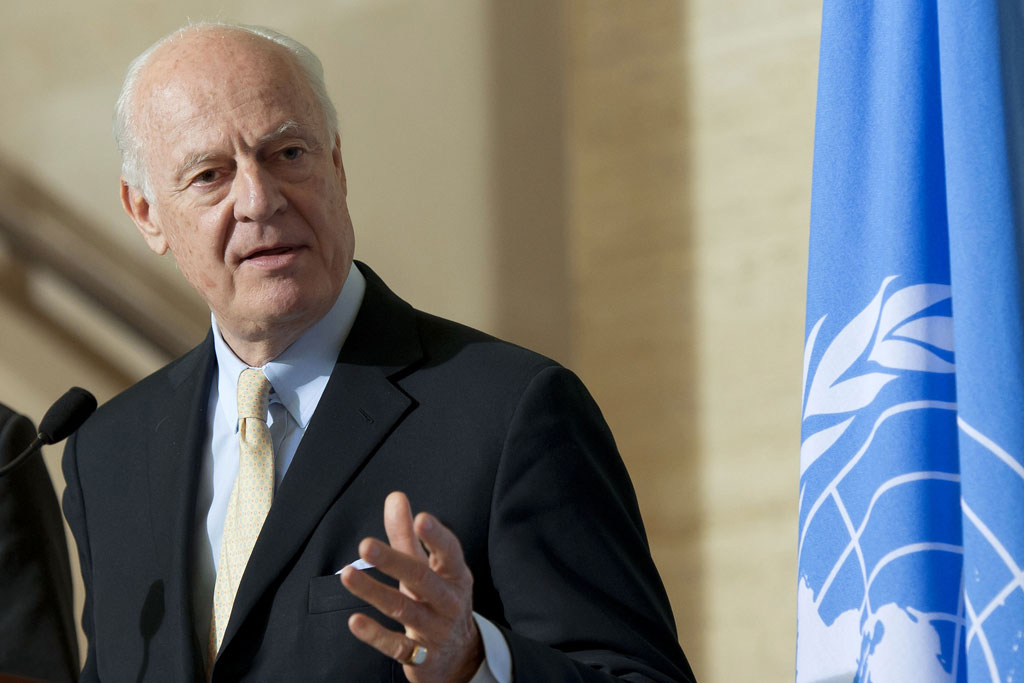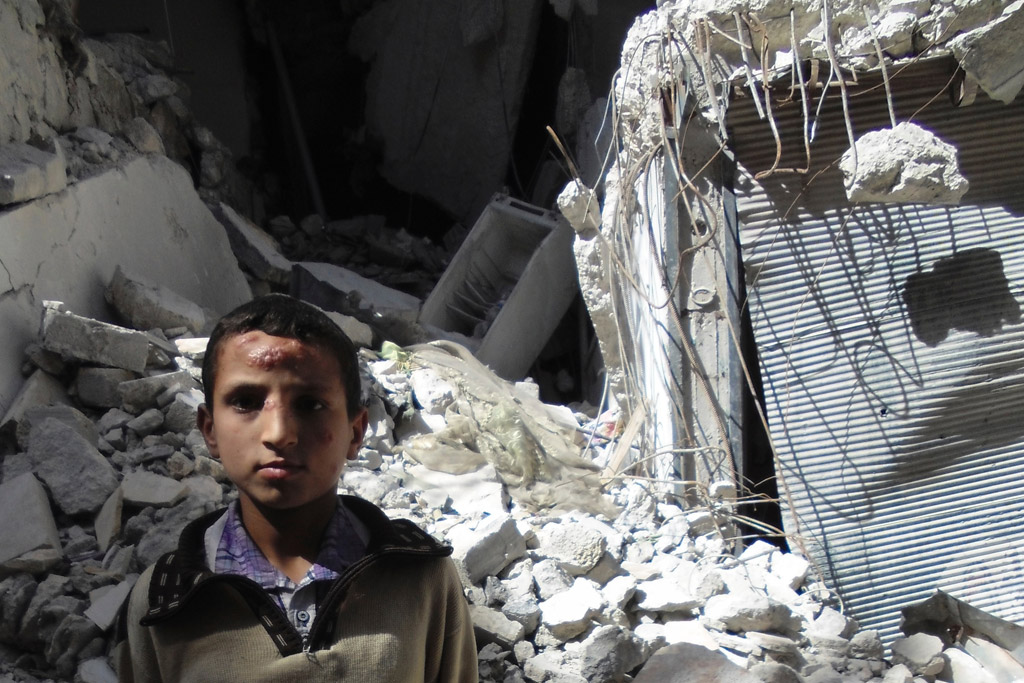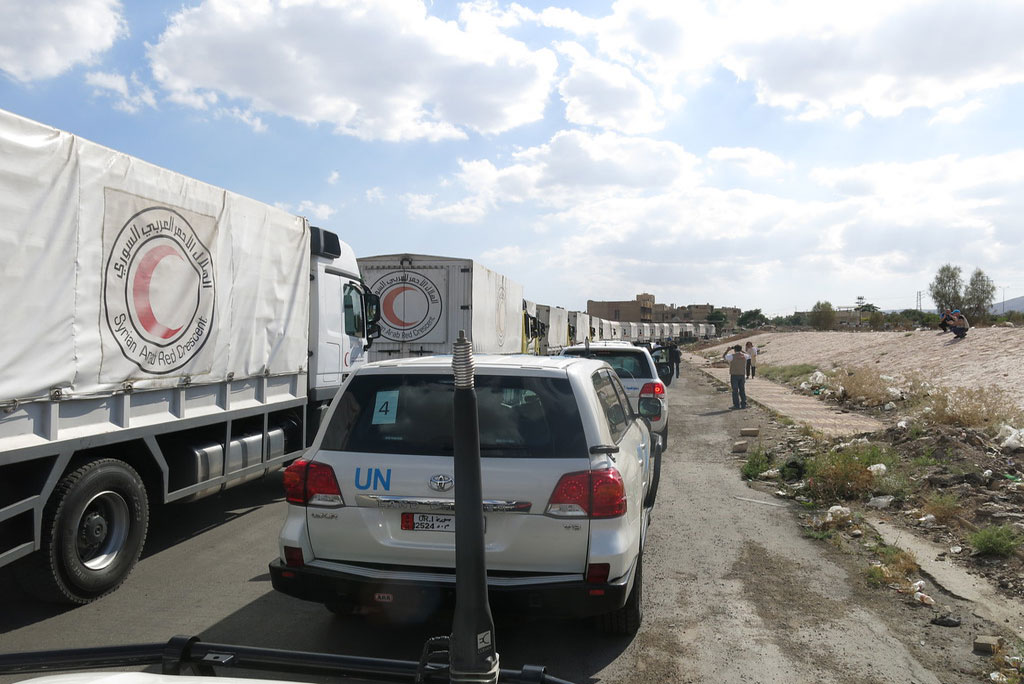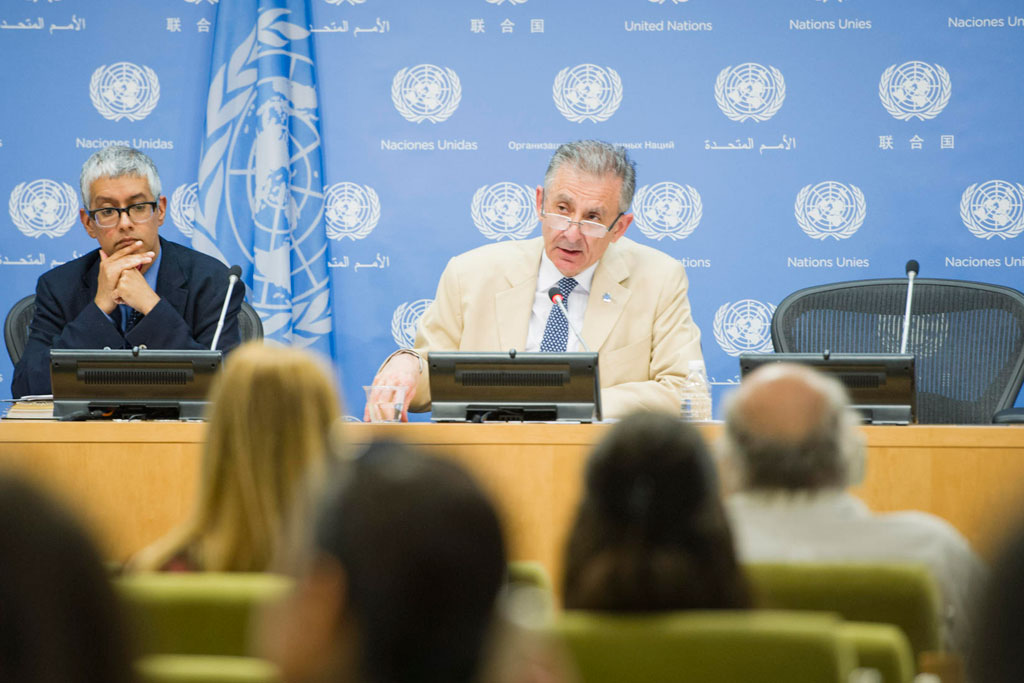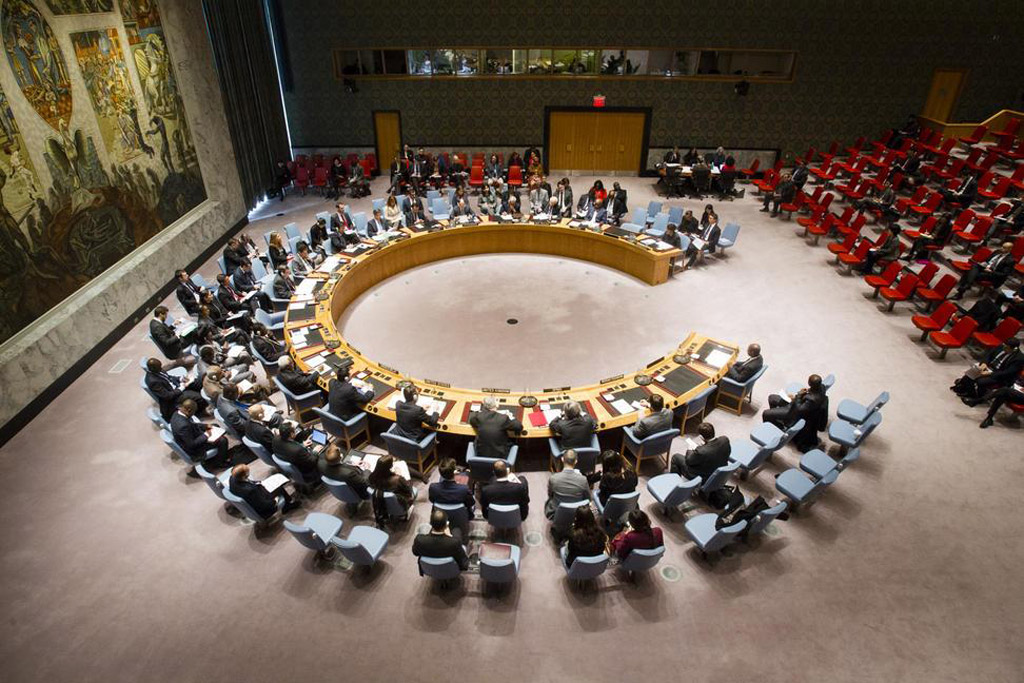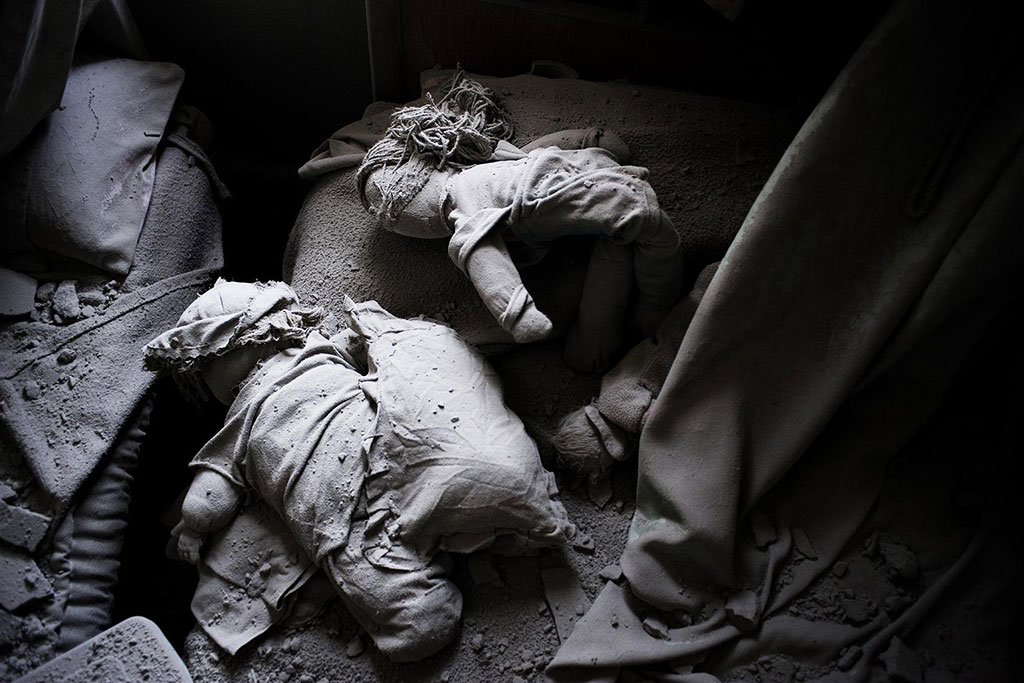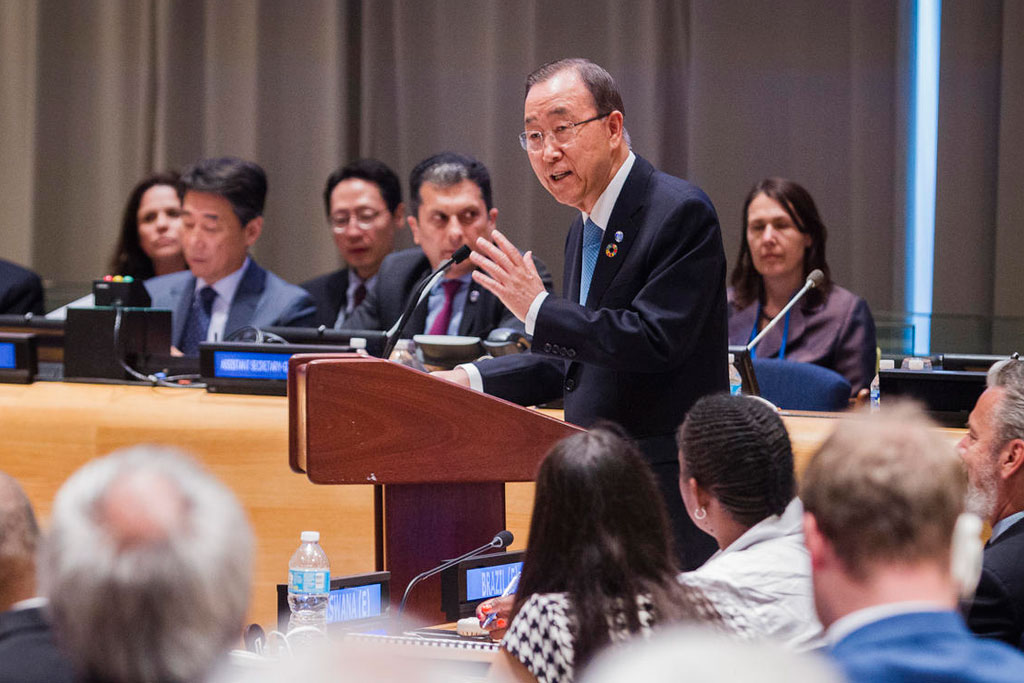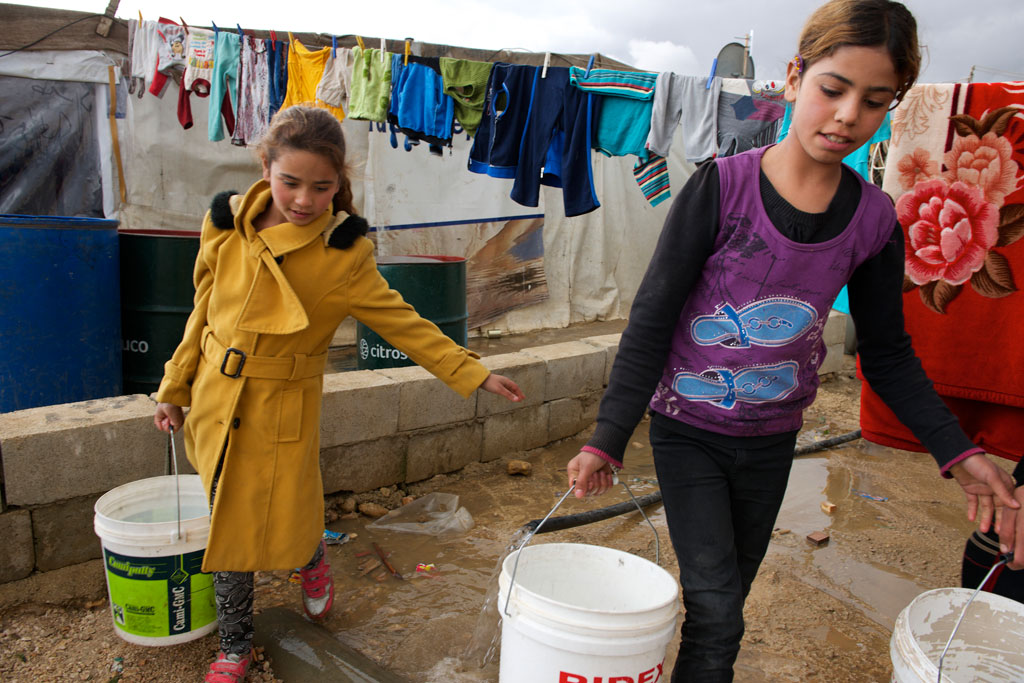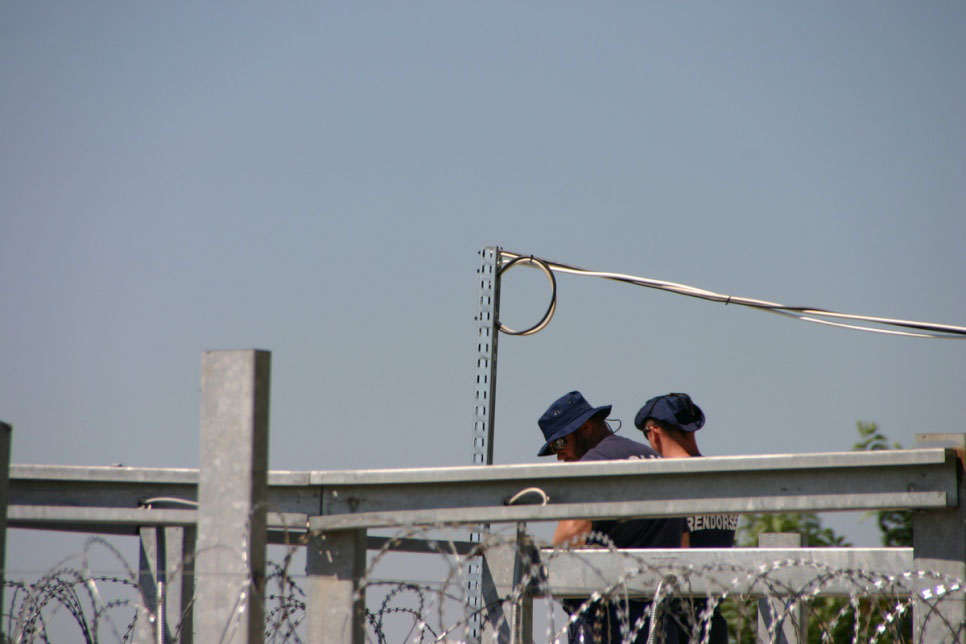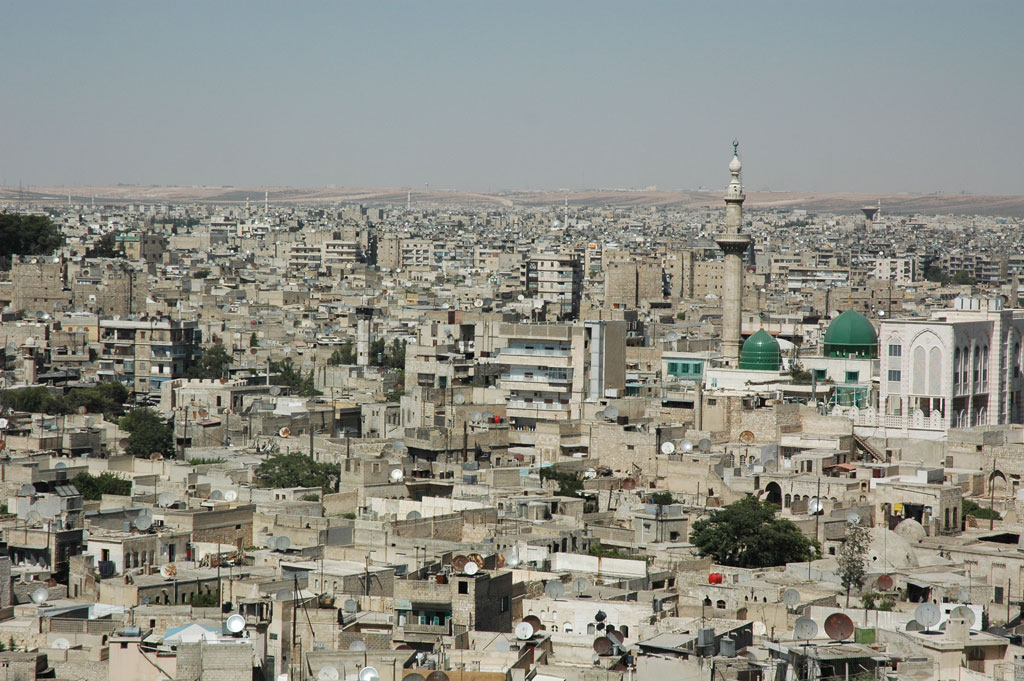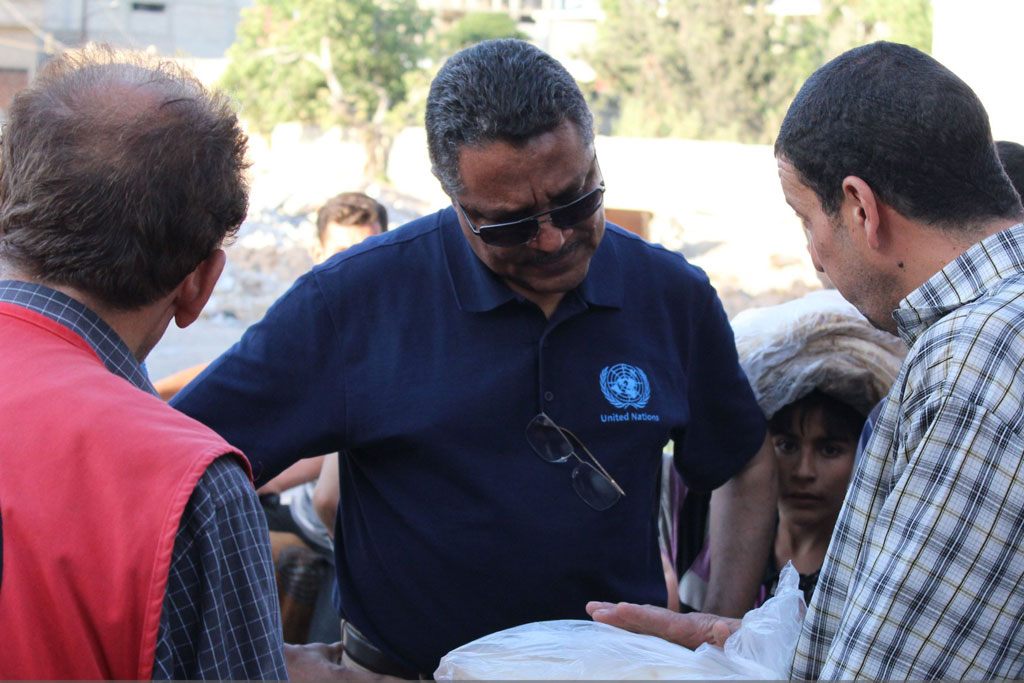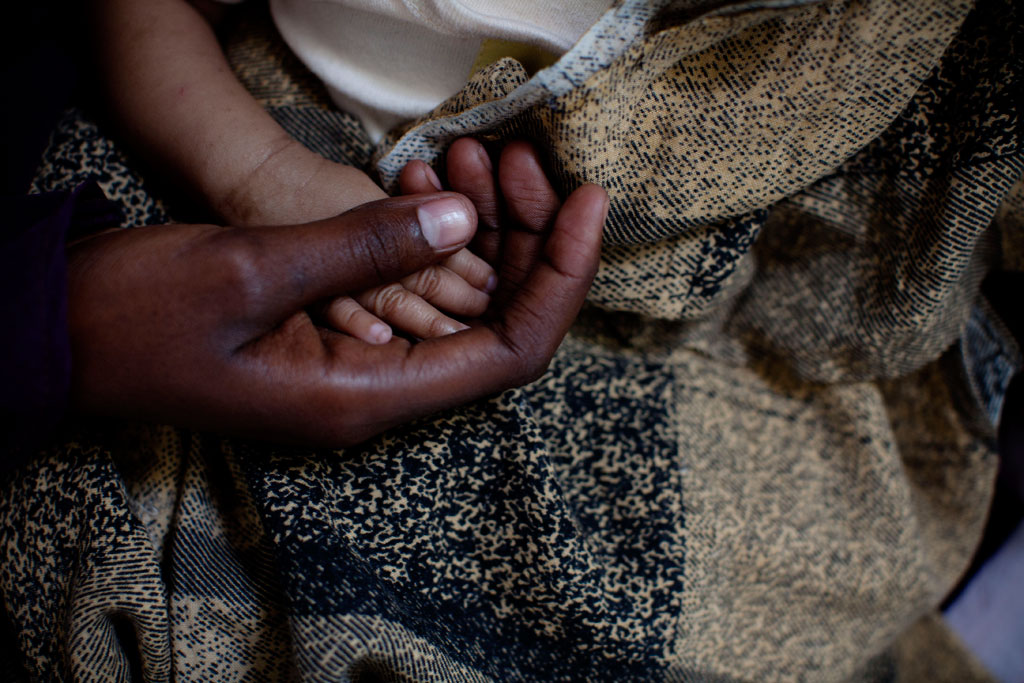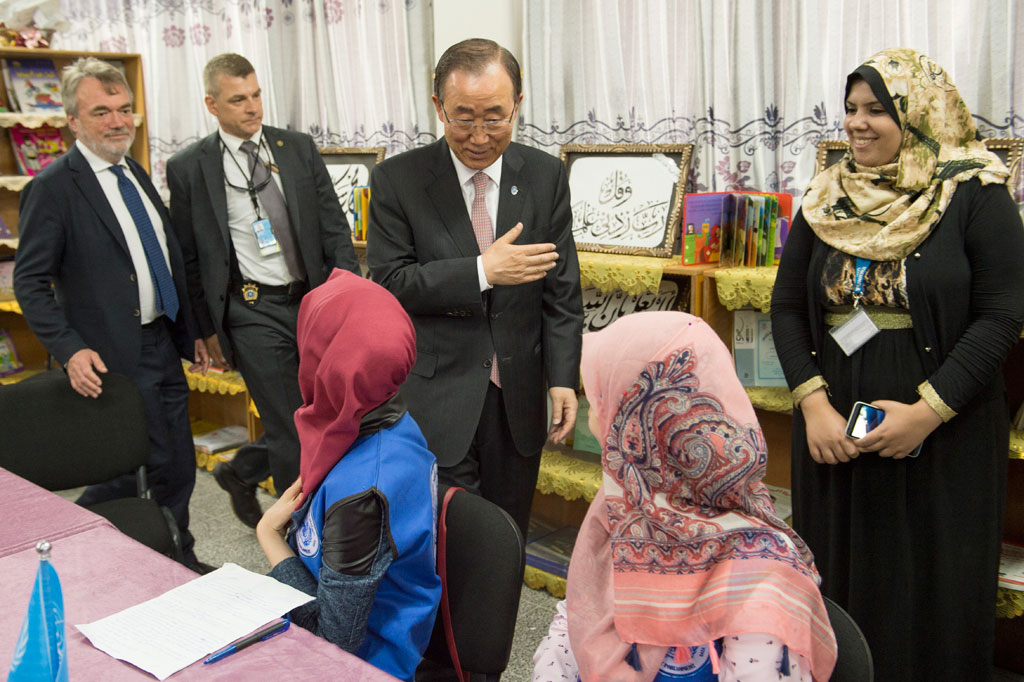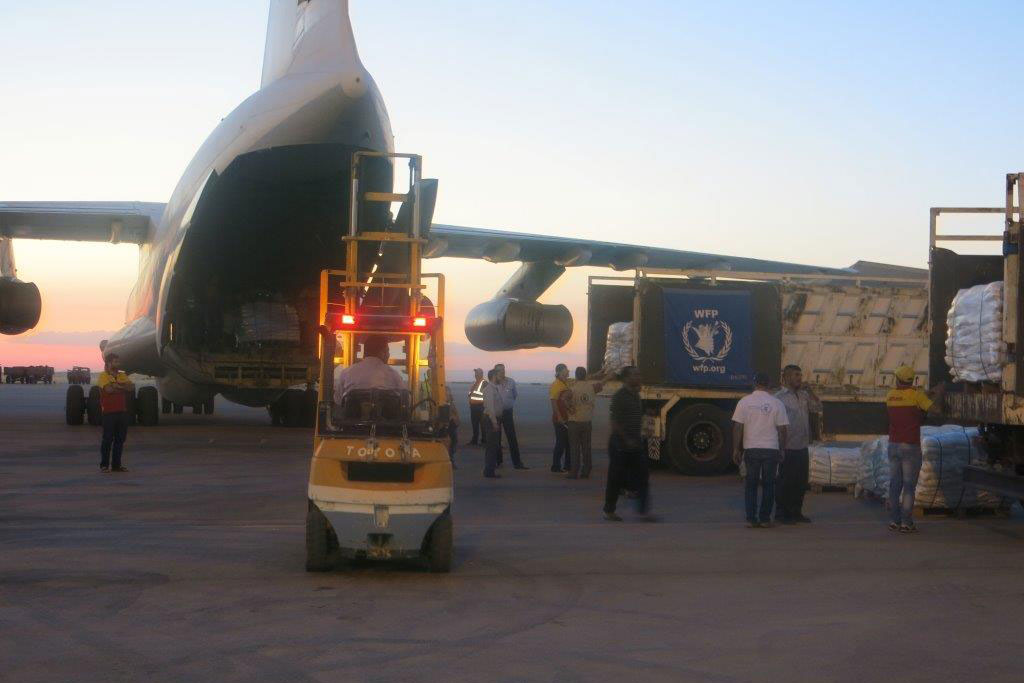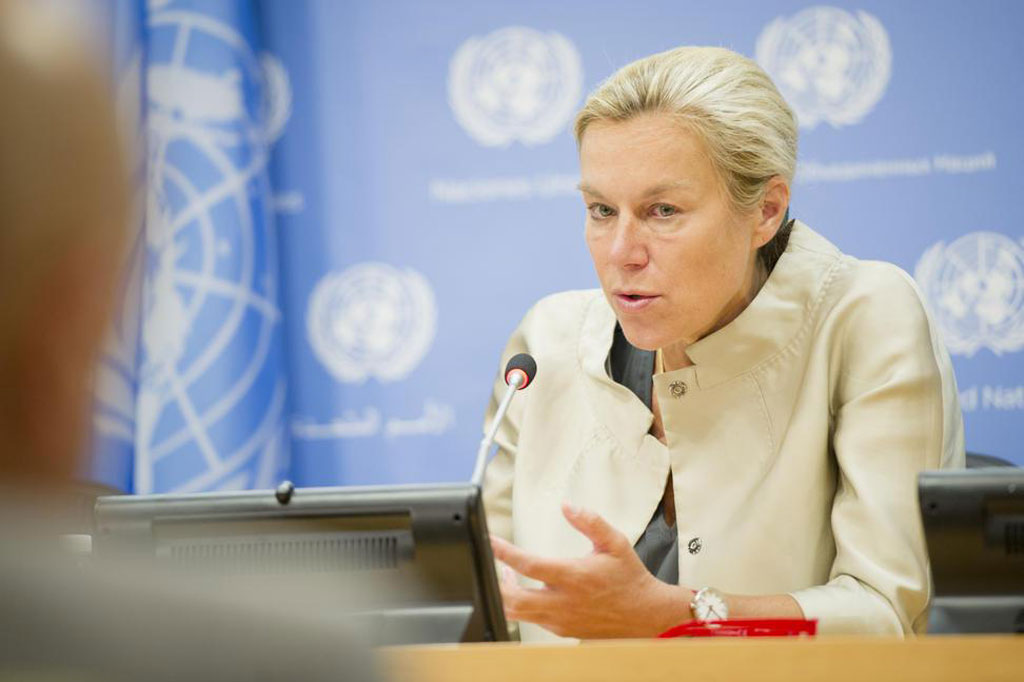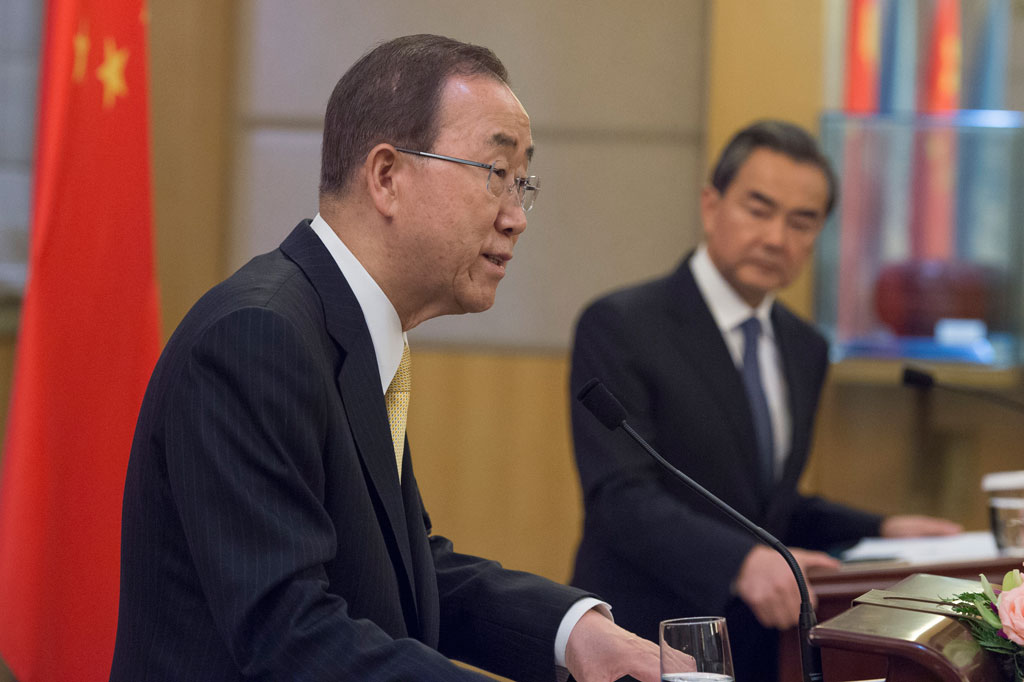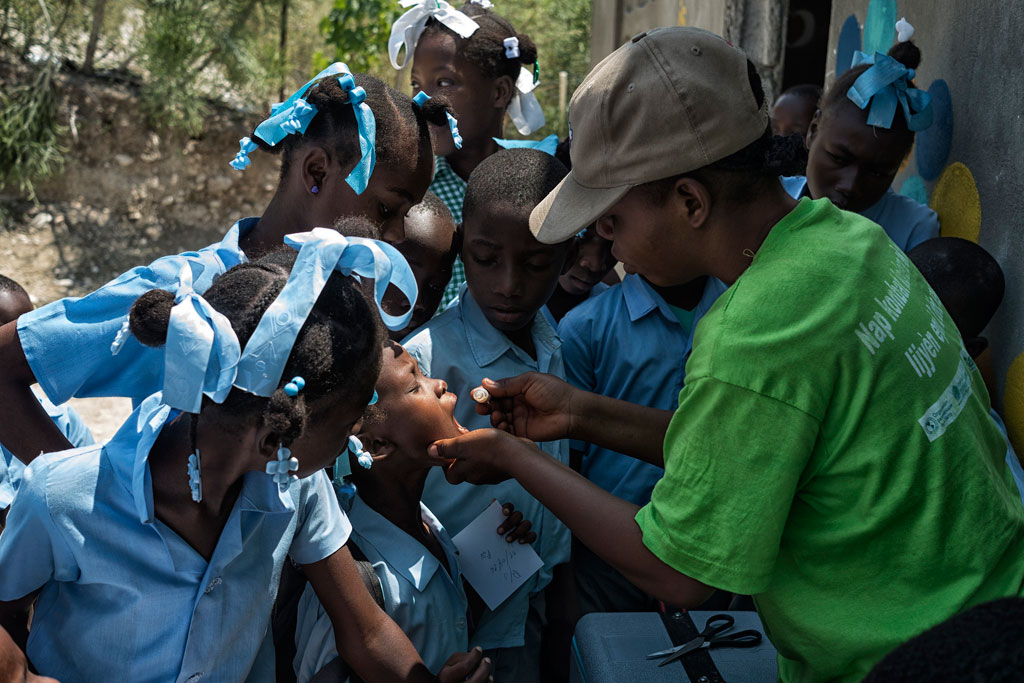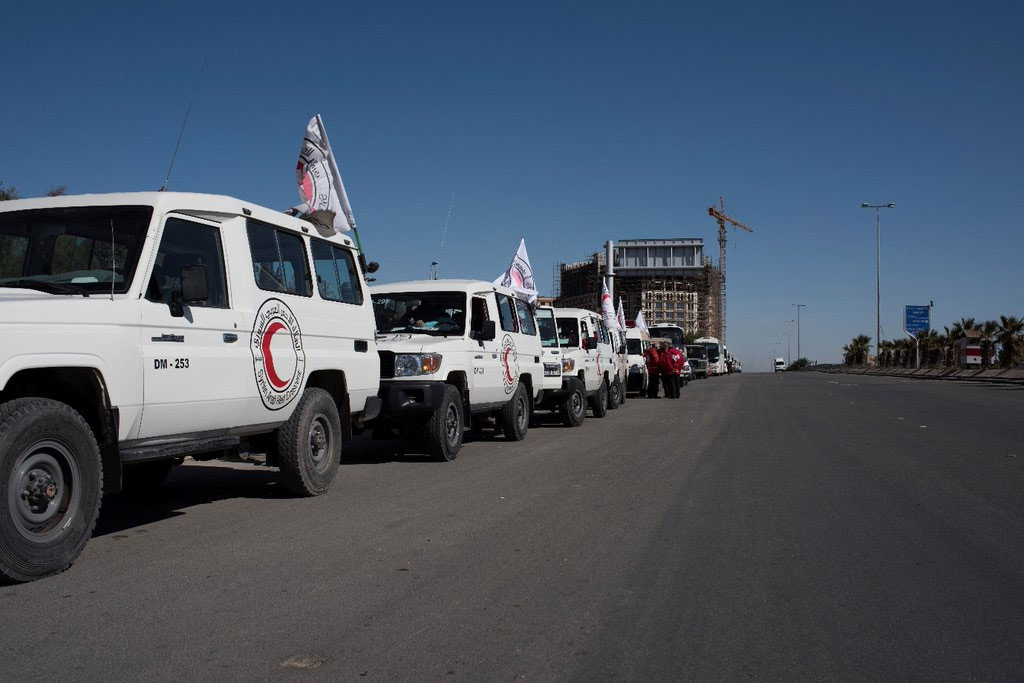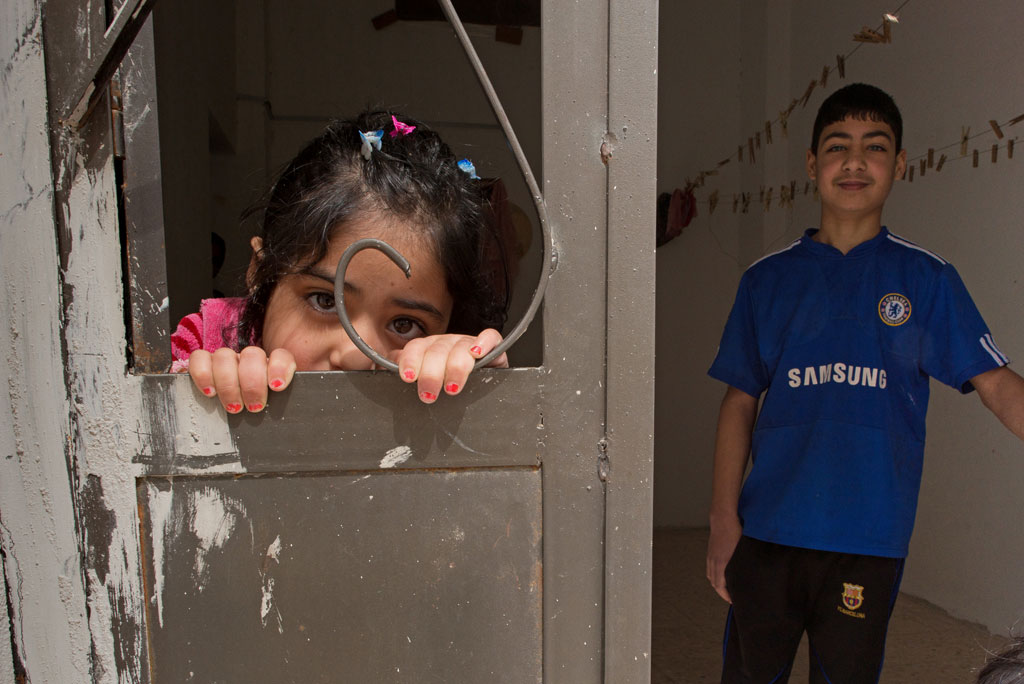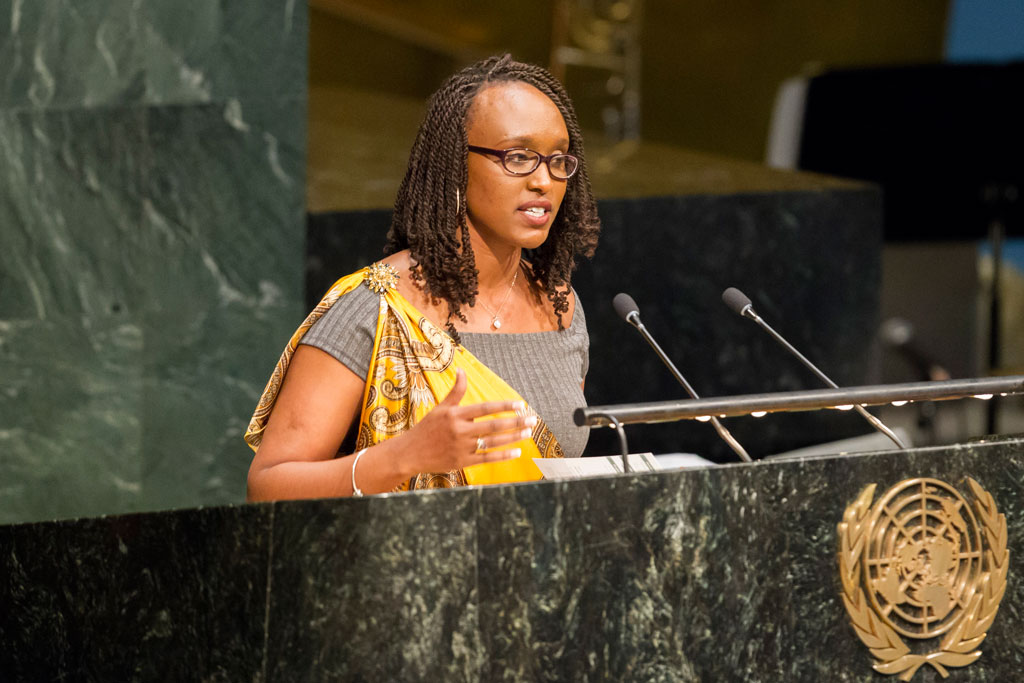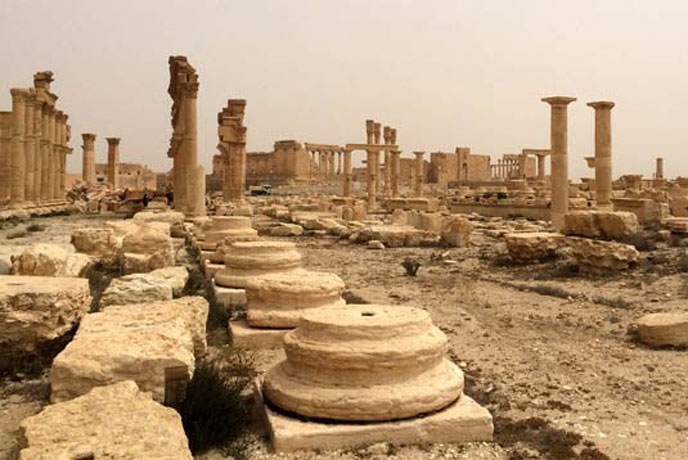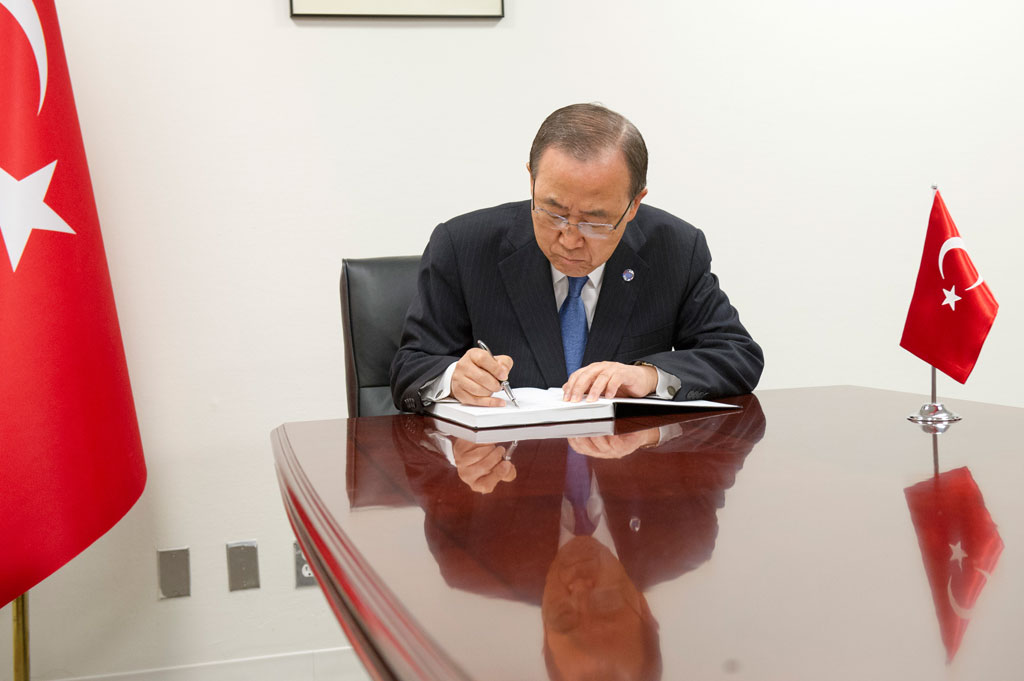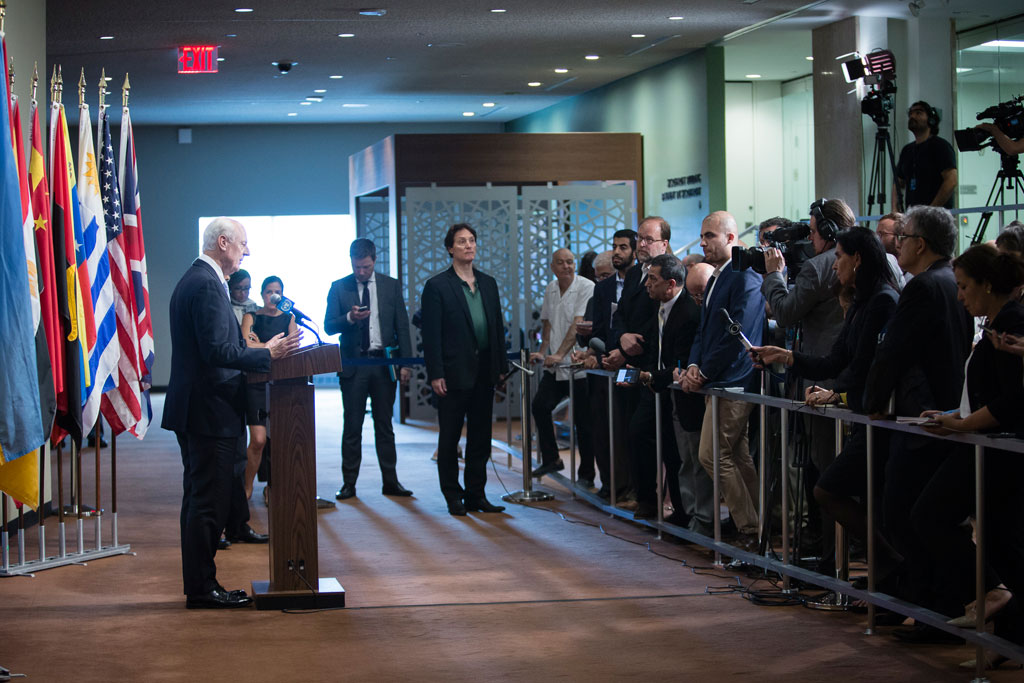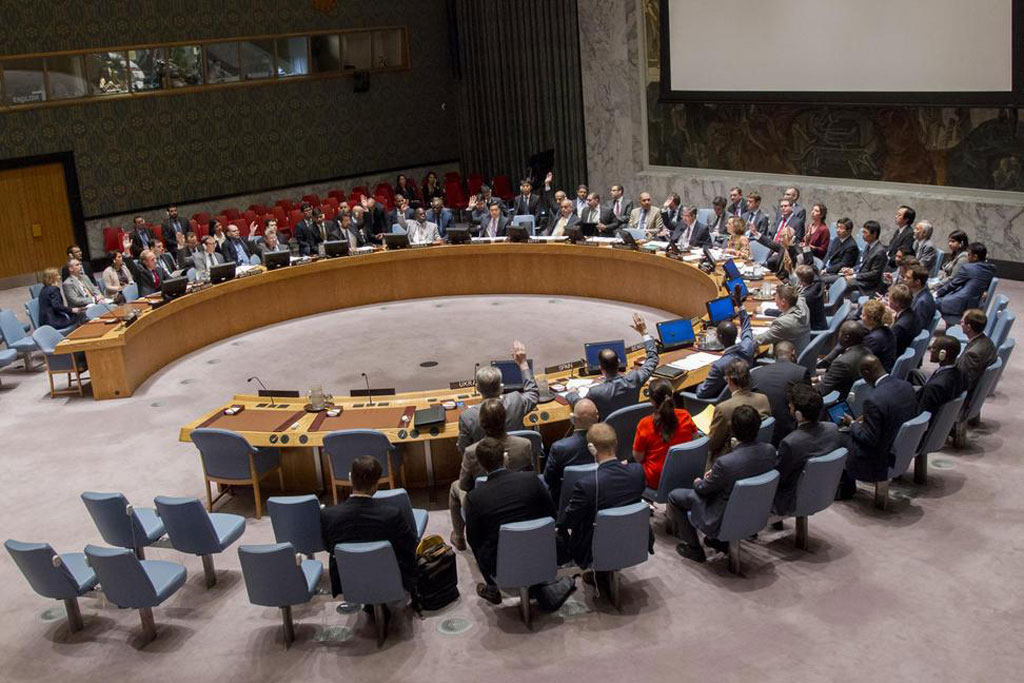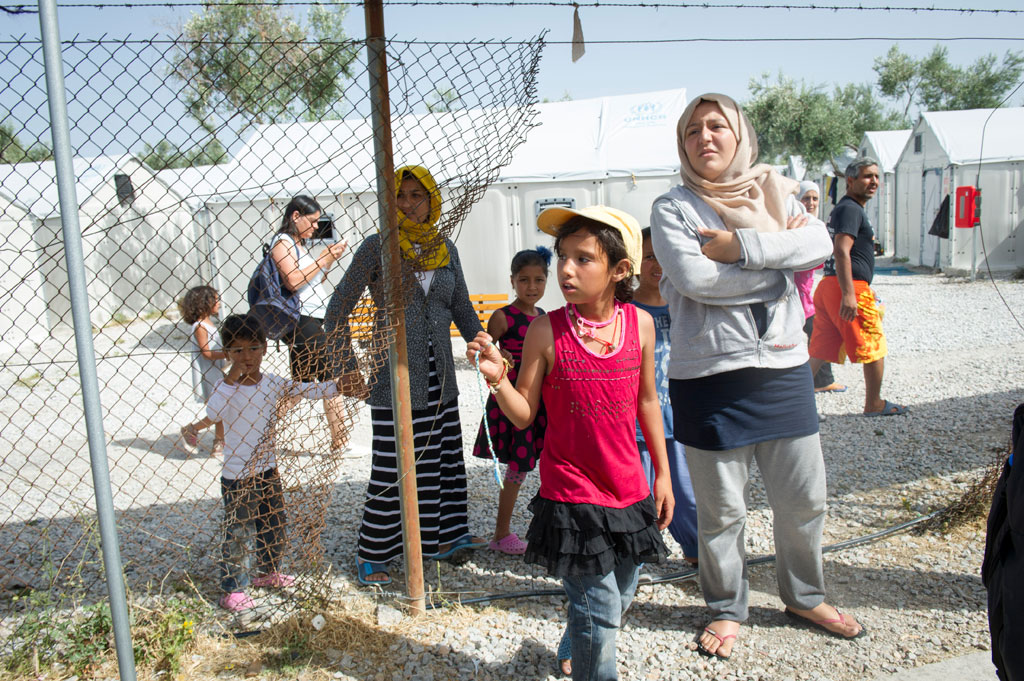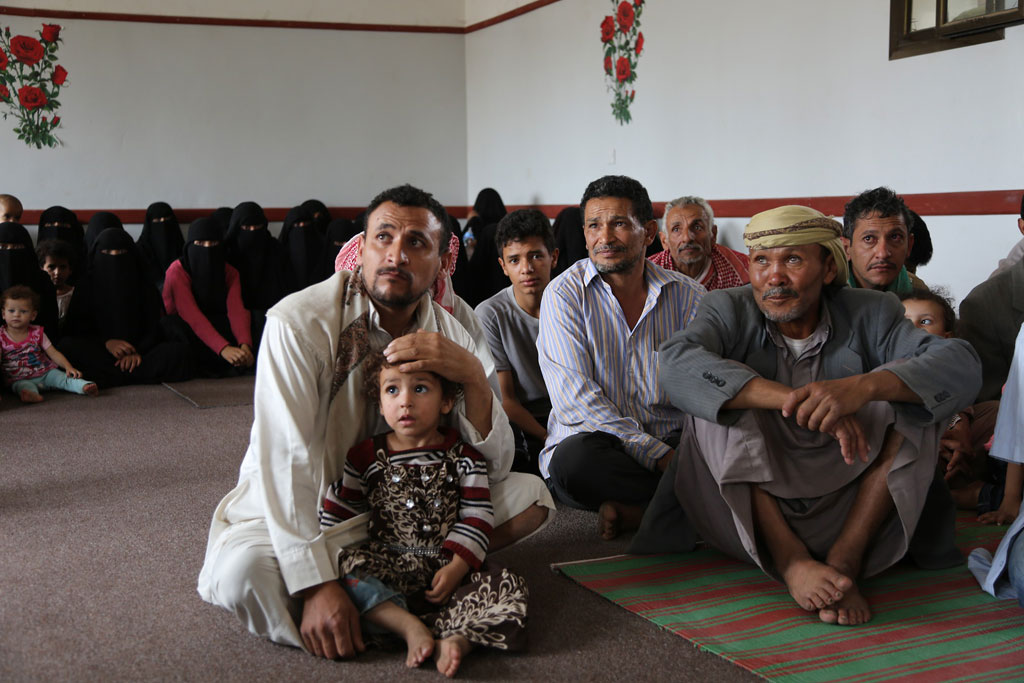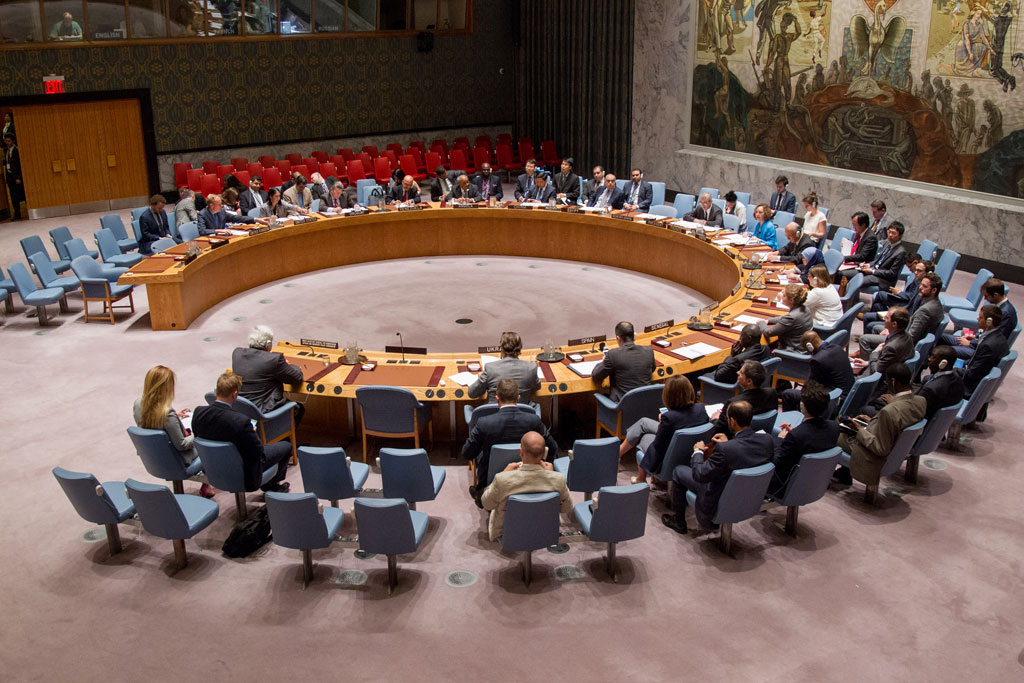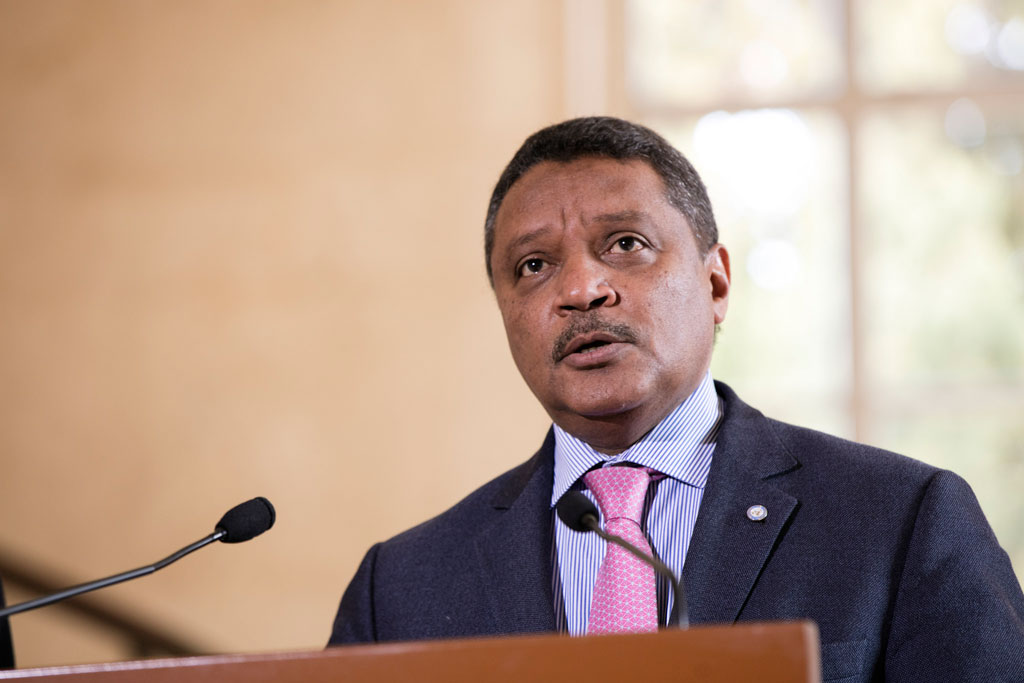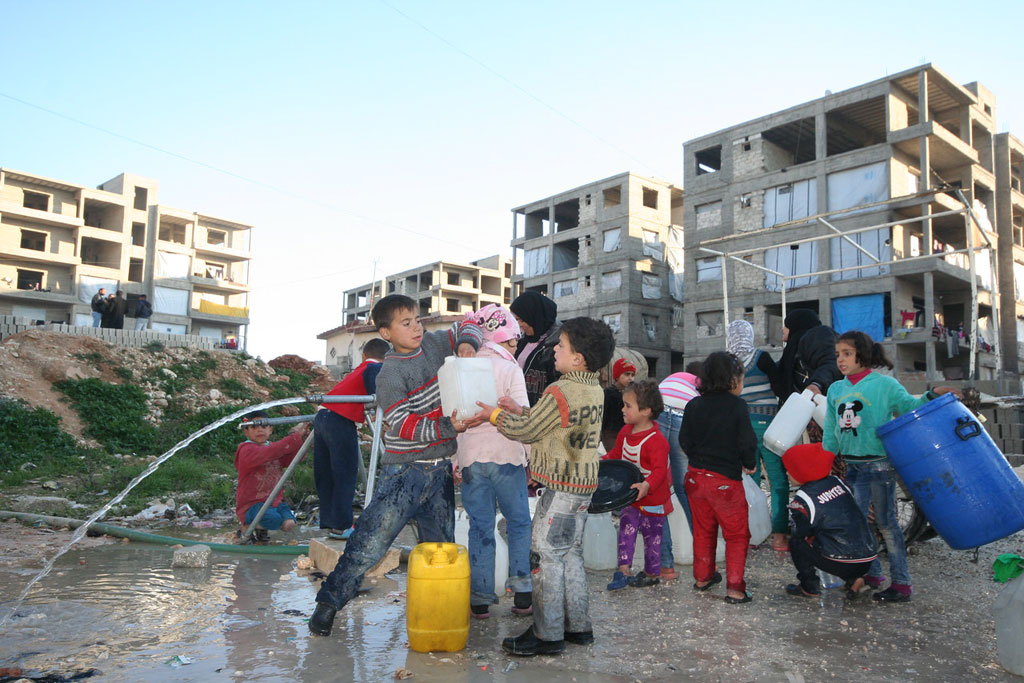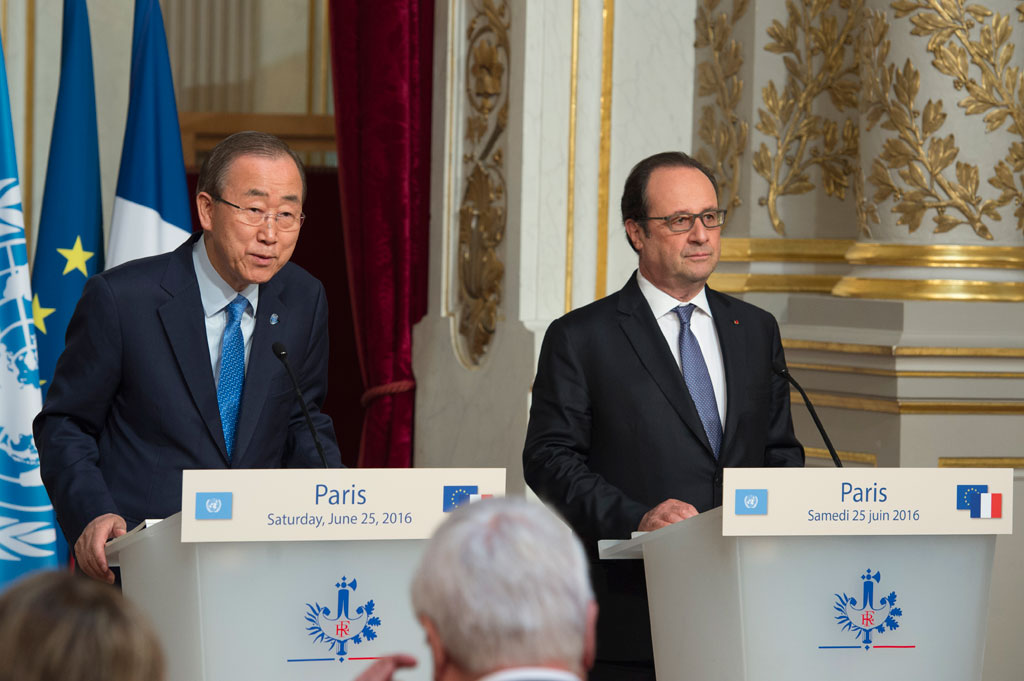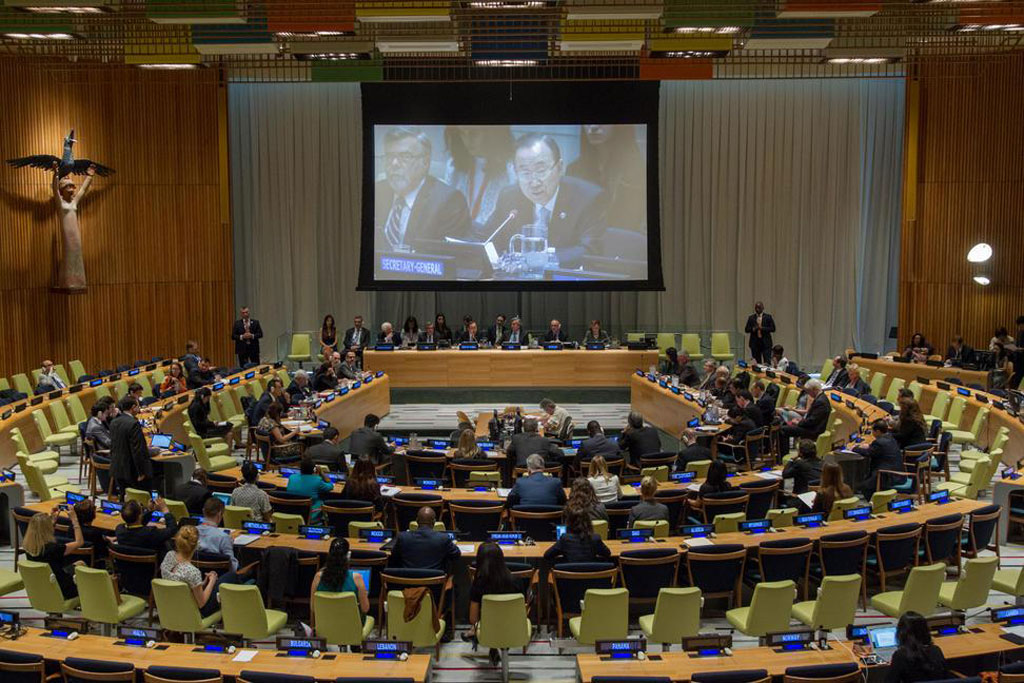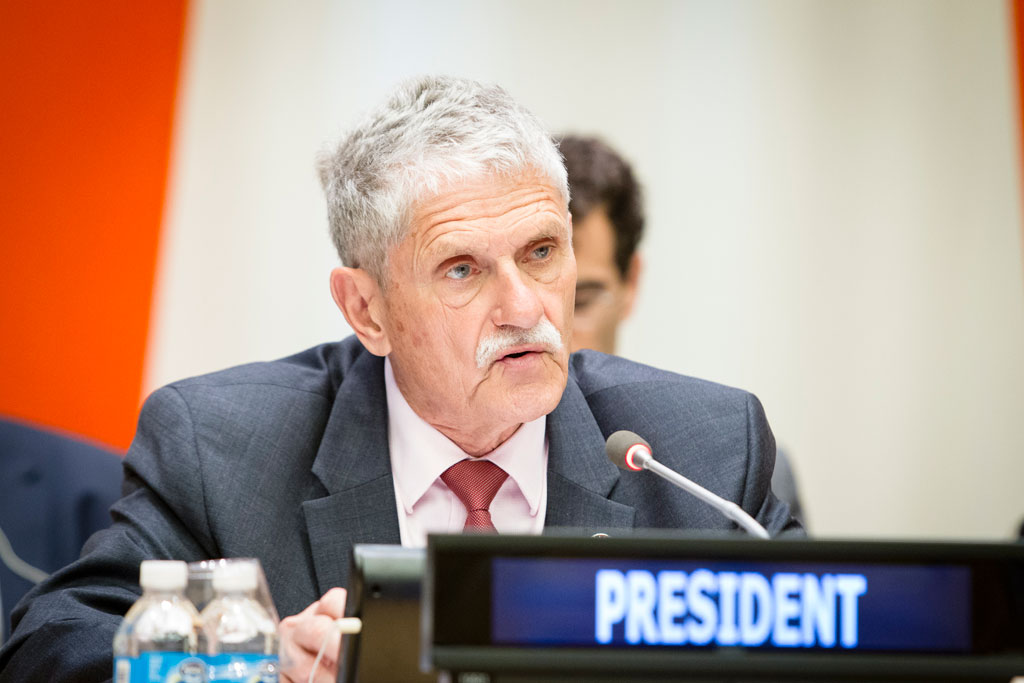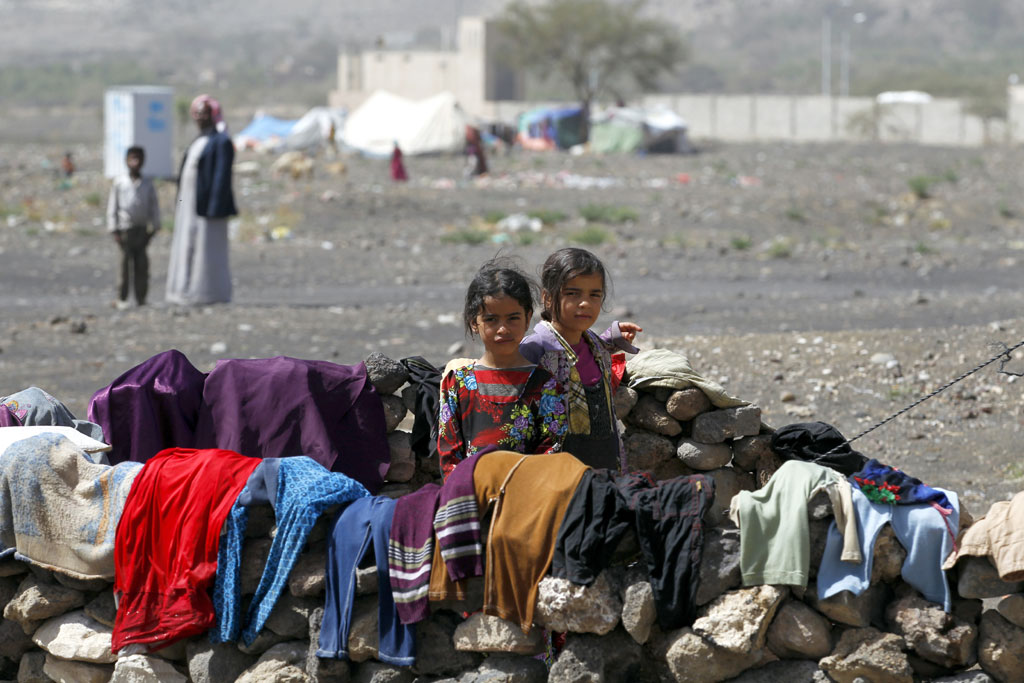News Focus: Syria
Key Resources

Syrian children shelter in a doorway amid gunfire and shelling. Photo: UNICEF/NYHQ2012-0218/Alessio Romenzi
The latest round of Intra-Syrian Talks, facilitated by UN Special Envoy for Syria took place from 13-27 April 2016 in Geneva. At its conclusion, Mr. de Mistura shared a mediator’s summary of common points reached between the parties. Talks focused on political transition, governance and constitutional principles. At the same time, two task forces created by the International Syria Support Group (ISSG) are overseeing the delivery of much-needed humanitarian aid to thousands of Syrians in besieged and other hard-to-reach areas, as well as a cessation of hostilities that began on 27 February and which was endorsed by Security Council resolution 2268.
The Intra-Syrian Talks started on 29 January 2016 in Geneva and were suspended on 3 February due to continuing violence and lack of humanitarian access on the ground. A second round of talks was held from 14-24 March 2016.
Secretary-General
Security Council
General Assembly

- Resolutions
The UN humanitarian response

Syrian refugees queue to be registered on the outskirts of the Lebanese town of Arsal. UNHCR/M. Hofer
Over 250,000 people have been killed and over one million injured since the onset of the crisis in 2011. More than half of all Syrians have been forced to leave their homes, often multiple times, making Syria the largest displacement crisis globally. Human rights violations and abuses continue to occur in the context of widespread insecurity and in disregard of international law, international humanitarian law, and human rights law. The UN is working with partners to provide humanitarian assistance to those in need.
UN agencies & humanitarian partners
* Statement by Humanitarian Principals marking five years of the Syrian conflict
Joint Investigative Mechanism of the UN and OPCW
The UN Security Council on 7 August 2015 established for one year a Joint Investigative Mechanism of the United Nations and the Organization for the Prohibition of Chemical Weapons (OPCW), which would identify “to the greatest extent feasible” individuals, entities, groups or Governments perpetrating, organizing, sponsoring or otherwise involved in the use of chemicals as weapons in Syria.
PRESS RELEASES:- 16 Jun '16 - Security Council Considers Progress Report of Joint Investigative Mechanism
- 31 May '16 - Joint Investigative Mechanism Signs Host Country Agreement with Netherlands
- 09 May '16 - Joint Investigative Mechanism for Syria Visits Damascus
- 22 Apr '16 - Joint Investigative Mechanism for Syria Visits Germany, Iran
- 09 Mar '16 - European Union Donates €4.6 Million to UN-OPCW Joint Investigative Mechanism, OPCW Special Missions in Syria
- 22 Feb '16 - Joint Investigative Mechanism Presents Its First Report to Security Council
- 21 Dec '15 - Joint Investigative Mechanism Panel Visits Syria
- 11 Dec '15 - United Nations Signs Status of Mission Agreement with Syria

Syrian pro-reform activists demonstrate in front of the UN building in Beirut, Lebanon, May 2011. EPA/W. Hamzeh
With human rights violations at the heart of the Syrian crisis, the UN has called for an immediate end to violence; release of political prisoners; impartial investigations to end impunity, ensure accountability and bring perpetrators to justice; and reparations for the victims.
Human Rights Council

- Resolutions
- Special Sessions
- Investigative reports

In Madaya, Syria, local community members help offload and distribute humanitarian aid supplies. Photo: WFP/Hussam Al Saleh
The crisis has also taken a devastating toll on development in Syria and in neighbouring countries. Since the onset of the crisis, Syria has gone from a middle-income country to one in which 4 of 5 residents are in poverty. Neighbouring countries such as Egypt, Iraq, Jordan, Lebanon and Turkey have also seen their hard-won development gains threatened as they cope with the challenge of hosting record numbers of refugees.
In this context, UN agencies are working together to build bridges between the humanitarian and development responses by supporting the resilience of the most affected communities in Syria and in host countries by strengthening livelihoods, rebuilding or improving infrastructure, and fostering social cohesion.

- The Joint Mission was established on 16 October 2013 to achieve timely elimination of the Syrian-declared chemical weapons programme. It closed on 30 September 2014
- The Mission was established following the adoption of SC resolution 2118 (2013) and upon the recommendations by the UN Secretary-General, in consultation with the OPCW Director-General
- The Secretary-General appointed a Special Coordinator of the Joint Mission
UN investigation mission
OPCW-UN joint advance team
The UN Supervision Mission in Syria (UNSMIS) was established by the Security Council on 21 April, through resolution 2043, to monitor a cessation of armed violence by all parties and to support implementation of Joint Special Representative Kofi Annan's "Six-point plan" to end the conflict in Syria.
Intensified armed violence across the country forced UNSMIS to suspend its activities on 15 June 2012.
On 20 July 2012, the Security Council decided to extend the Mission for a final 30 days, stressing that any further extension would be possible only "in the event that the Secretary-General reports and the Security Council confirms the cessation of the use of heavy weapons and a reduction in the level of violence sufficient by all sides'' to allow the UNSMIS monitors to implement their mandate. As those conditions were not met, the Mission's mandate came to an end at midnight on 19 August 2012.

The long-awaited international conference on Syria aims to find a political solution to the ongoing conflict, and marks the first time the Syrian Government and the opposition will meet for direct talks since the conflict began in March 2011. Hosted by Secretary-General Ban Ki-moon and Joint UN-Arab League Special Representative Lakhdar Brahimi, the conference is taking place in Switzerland in two parts, opening in Montreux on 22 January 2014, and continuing at the UN office in Geneva, on 24 January. More than 30 nations have been invited to attend.

Joint Special Representative of the UN and the League of Arab States for the crisis in Syria, Lakhdar Brahimi

Through his good offices, the Joint Special Envoy sought to promote a peaceful solution to the crisis in line with the aspirations of the Syrian people. He represented the UN and the Arab League in what Secretary-General Ban Ki-moon said were "selfless efforts and contributions to the search for peace in Syria.
Meeting of the Action Group
The Joint Special Envoy (JSE) convened a meeting of the Action Group for Syria in Geneva on 30 June 2012.
- JSE: Opening remarks | Concluding remarks | Press conference
- Action group: Final communiqué
Everyone agrees that political transition is a priority and no one is denying it.
Staffan de Mistura, the UN Special Envoy for Syria, in remarks following Security Council consultations, 29 June 2016
Video
#SyriaCrisis: 5 years in 60 seconds

